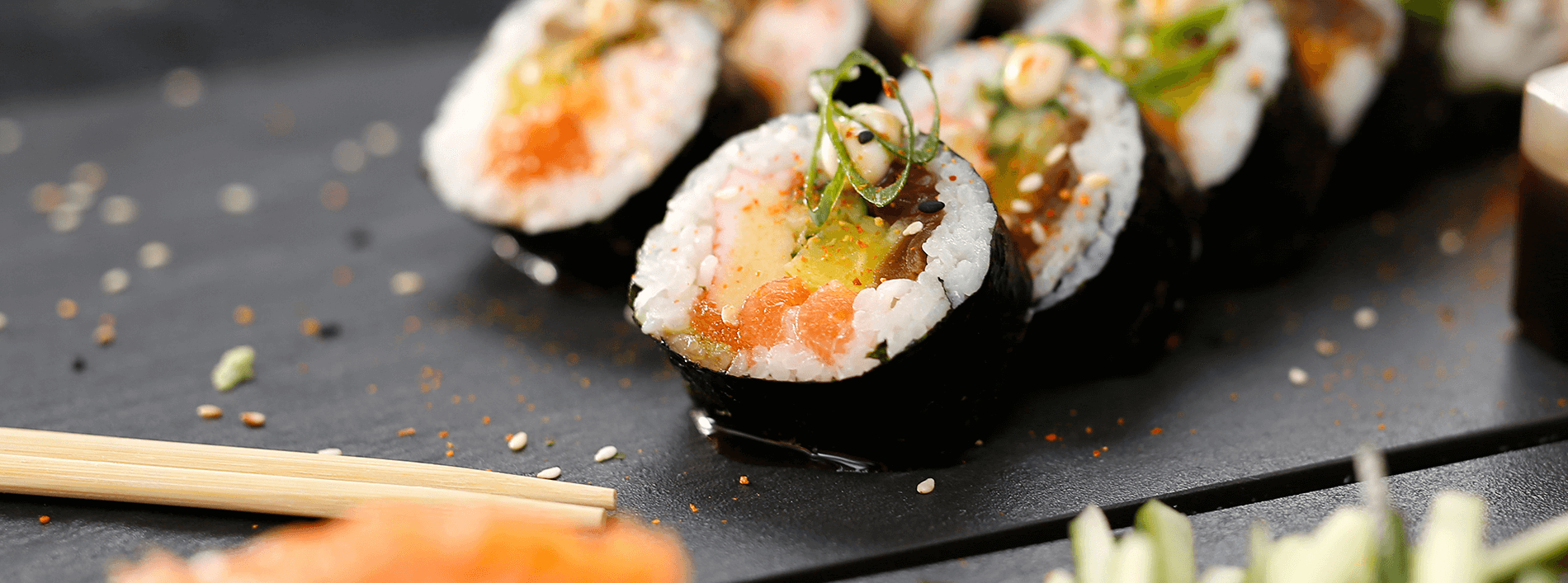If you’re keen on sushi then you may well be pleased to hear that this Japanese favourite could be providing you with more than just a tasty lunchtime snack or evening treat. Indeed, scientists now believe that sushi – flavoured parcels of rice with raw fish and vegetables – is one of the reasons why the Japanese are among the healthiest people in the world. So, as well as treating your taste buds, sushi could also help you to stay in good health.
Comparisons
On average, a typical Japanese diet of raw fish, vegetables and rice contains only 30pc fat (most of which is the healthier polyunsaturated variety), compared with 40pc in Britain. As a result, Japanese citizens enjoy some of the lowest rates of heart disease in the world.
But what exactly is it about sushi that makes it so good for you?
Well, as we here at You Me Sushi are famous for making the best sushi London has to offer, we thought we would throw some light on the subject. So, without further ado, here is our guide to the unique health-giving properties of sushi.
Raw fish
It is estimated that the average Japanese citizen consumes around 100 grams of fish every day by way of eating dishes like sushi, tempura and sashimi. Raw fish of this kind provides consumers with omega-3 fatty acids, something which the human body does not create naturally. Omega 3-fatty acids are believed to have impressive health-giving properties as they have been linked to heart protection and improved circulation.
Rice
Like many other Asian countries, rice is the staple of the Japanese diet as it is a good source of energy and provides plenty of protein. Naturopaths have long used rice to treat digestive disorders as it has been shown to be effective at relieving diarrhoea. Highly refined white rice has fewer nutrients than brown rice.
Wasabi
Wasabi is the green paste which often comes with sushi (some people refer to it as being the Japanese equivalent of English mustard). Wasabi is thought to afford consumers a range of health benefits. Indeed, as well as aiding cancer prevention and preventing blood clots if eaten regularly, scientists in Japan have discovered compounds in wasabi called isothiocyanates which can also help to prevent tooth decay.
Seaweed
The Japanese use seaweed in large amounts in their diet because of its concentrated mineral content. In fact, it is estimated that nearly a quarter of all Japanese food contains seaweed to boost flavour. In sushi, dried sheets are wrapped around rice and vegetables to form a mini-parcel. This makes sushi rich in iodine (which is vital for a healthy thyroid), as well as copper, calcium iron and magnesium.
So, as you can see, there are a great many reasons why sushi (and of course sushi delivery) is so good for you. To find out more and experience the health-giving benefits of sushi first hand, order some of our wonderful delivery sushi today!



